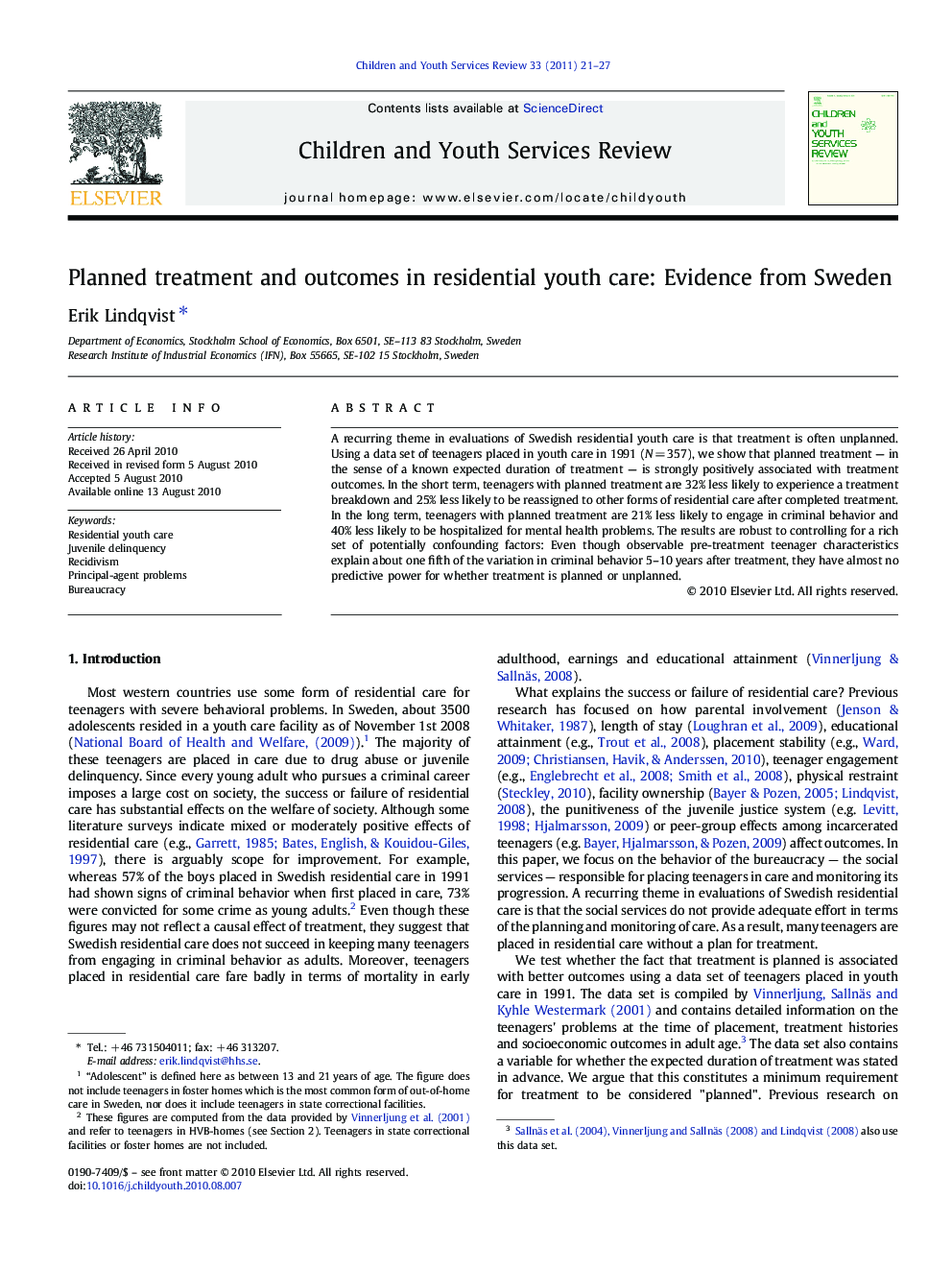| Article ID | Journal | Published Year | Pages | File Type |
|---|---|---|---|---|
| 347438 | Children and Youth Services Review | 2011 | 7 Pages |
A recurring theme in evaluations of Swedish residential youth care is that treatment is often unplanned. Using a data set of teenagers placed in youth care in 1991 (N = 357), we show that planned treatment — in the sense of a known expected duration of treatment — is strongly positively associated with treatment outcomes. In the short term, teenagers with planned treatment are 32% less likely to experience a treatment breakdown and 25% less likely to be reassigned to other forms of residential care after completed treatment. In the long term, teenagers with planned treatment are 21% less likely to engage in criminal behavior and 40% less likely to be hospitalized for mental health problems. The results are robust to controlling for a rich set of potentially confounding factors: Even though observable pre-treatment teenager characteristics explain about one fifth of the variation in criminal behavior 5–10 years after treatment, they have almost no predictive power for whether treatment is planned or unplanned.
